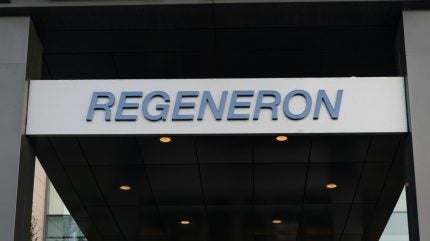

Regeneron Pharmaceuticals’ gene therapy for otoferlin hearing loss, DB-OTO, has restored hearing to normal in an 11-month-old child within 24 weeks and improved hearing in another four-year-old child at six weeks.
The data is from an open-label Phase I/II CHORD trial (NCT05788536), which was presented at the 2024 American Society of Gene and Cell Therapy (ASGCT) annual conference taking place in Baltimore from 7 to 11 May.

Discover B2B Marketing That Performs
Combine business intelligence and editorial excellence to reach engaged professionals across 36 leading media platforms.
As part of the CHORD study, both children received a single intracochlear injection of DB-OTO in one ear. The trial’s secondary endpoints include hearing improvement, measured using auditory brainstem response (ABR) and behavioural audiometry with pure-tone audiometry (PTA).
At 24 weeks, the younger child observed improvement of hearing to normal levels, with an average 80 decibels (dB) improvement from baseline. The second participant observed an average 16dB improvement in hearing response, compared to baseline, at six weeks. The surgical procedure and the gene therapy were well tolerated, with no treatment-related adverse events or serious adverse events.
DB-OTO is an adeno-associated virus gene therapy designed to restore hearing in patients with congenital otoferlin hearing loss. The rare hearing loss is caused by variants in the otoferlin gene that impair the production of the OTOF protein, responsible for communication between the sensory cells of the inner ear and the auditory nerve.
The Phase I/II CHORD trial is still recruiting participants across the US and Europe, according to Regeneron. The study is expected to enrol approximately 22 children with otoferlin hearing loss aged 17 years and younger.

US Tariffs are shifting - will you react or anticipate?
Don’t let policy changes catch you off guard. Stay proactive with real-time data and expert analysis.
By GlobalDataTrial recruitment is usually a concern, especially for rare diseases and paediatric trials. Regeneron spokesperson told Clinical Trials Arena that the company had a “healthy queue of patients” for its auditory research trials owing to early data read-outs and resulting media coverage. “Keep in mind, as with any investigational treatment, particularly a gene therapy, we stagger patient enrolment as we want to monitor for a period of time after dosing to ensure there are no efficacy or safety observations.”
Adding that “now that we’ve presented more data and are seeing strong efficacy in addition to the therapy being well-tolerated, we have confidence to expedite these processes.”
“One key aspect that we do want to raise attention to is the awareness of genetic testing. A part of the challenge is that once a young child is diagnosed with hearing loss, there is a quick turn to schedule the cochlear implant surgery.”
“Having this procedure done bilaterally (to both ears) makes them ineligible for our trial and others, so we do want to get the word out there to consider genetic testing to determine if there are other options available. In the US, we have the Amplify program that provides no-cost testing for eligible patients.”
Other companies developing gene therapies for improving otoferlin hearing loss include Sensorion and Akouos. In January, Sensorion received the go-ahead to start Phase I/II clinical trial of its gene therapy SENS-501 for otoferlin hearing loss in select European countries. The study will evaluate SENS-501 in children aged six to 31 months at the time of treatment.
The same month, Eli Lilly and Company subsidiary Akouos shared data from the Phase I/II AK-OTOF-101 clinical trial of its investigational gene therapy, AK-OTOF. The results showed that the adeno-associated virus gene therapy improved hearing in children with otoferlin hearing loss.
Update: This article was updated on 16 May with additional comments from Regeneron
Cell & Gene Therapy coverage on Clinical Trials Arena is supported by Cytiva.
Editorial content is independently produced and follows the highest standards of journalistic integrity. Topic sponsors are not involved in the creation of editorial content.






